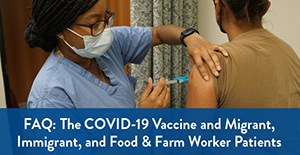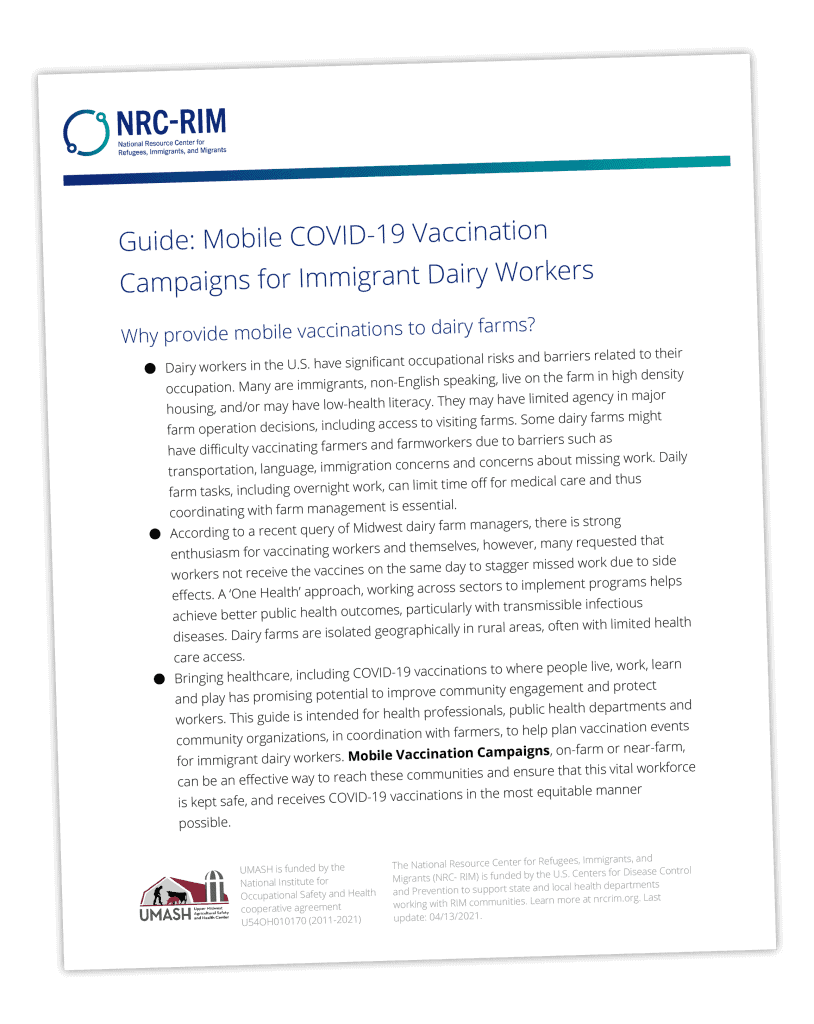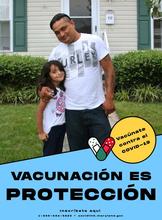Delta Variant
Viruses are always changing. When a big change happens, scientists call it a new variant. Some variants disappear and never cause harm, while others can make a virus easier to spread, harder to treat, and/or more deadly.
The Delta variant is one of the COVID-19 variants that scientists are monitoring. This variant was first discovered in India in December 2020. Since then, it has spread to more than 90 countries. It was first found in the U.S. in March 2021 and is already the most common variant in the United States.
The best way to protect yourself, your family, and your community from the Delta variant is to be fully vaccinated.
If you are not fully vaccinated, you are much more likely to become infected with the Delta variant,
get seriously ill, and spread it to others.
Frequently Asked Questions:
The CDC is providing recommendations to federal, state, and local governments about who should be vaccinated first but each state has its own plan for deciding vaccine distribution. A common plan being used is a phased approach, focusing on the most high risk populations first. Everyone’s opportunity to get vaccinated will come but it will just take some time.
Minnesota
Minnesota is distributing COVID-19 vaccines with a phased approach. To view the current progress and when you will be eligible to receive the vaccine, visit the Minnesota Department of Health’s official vaccine distribution page. To find vaccination opportunities in your area also visit their vaccine location map.
South Dakota
South Dakota is distributing COVID-19 vaccines with a phased approach. To view the current progress and when you will be eligible to receive the vaccine, visit the South Dakota Department of Health’s official vaccine information page. To find vaccination opportunities in your area also visit their vaccine location map.
North Dakota
North Dakota is distributing COVID-19 vaccines with a phased approach. To view the current progress and when you will be eligible to receive the vaccine, visit the North Dakota Department of Health’s official vaccine information page. To find vaccination opportunities in your area also visit their vaccine locator.
Iowa
Iowa is distributing COVID-19 vaccines with a phased approach. To view the current progress and when you will be eligible to receive the vaccine, visit the Iowa Department of Health’s official vaccine information page.
Wisconsin
Wisconsin is distributing COVID-19 vaccines with a phased approach. To view the current progress and when you will be eligible to receive the vaccine, visit the Wisconsin Department of Health’s official vaccine information page.
The current vaccines are safe and highly effective. Millions of people in the United States have received the vaccines, and these vaccines have undergone the most intensive safety monitoring in U.S history.
The Pfizer vaccine showed efficacy of 95% and the Moderna vaccine was 94.1% effective at preventing Covid-19. The vaccines appeared to be equally effective across different ethnic and racial groups.
The side effects of the COVID-19 vaccine are no different or more extreme than those you get from any other vaccine such as your annual flu shot. Vaccine developers reported a few side effects of COVID-19 vaccines, including pain at the injection site, fever, muscle aches, fatigue, joint pain, and headaches, mostly lasting about a day or two. These reactions are normal and show the vaccine is working.
People with allergies to certain foods, insects, latex and other common allergens can have the COVID-19 vaccine, according to the CDC. A small number of people have had a severe allergic reaction after vaccination, but this is extremely rare about 2-6 cases per million doses, and is treatable. Those who experience an immediate severe allergic reaction to the first dose should not receive additional doses, and talk to their healthcare professional as soon as possible for treatment. If you have any history of a severe allergic reaction (anaphylaxis) to injectables or other vaccines, you should discuss the vaccination with your healthcare provider to evaluate and assess the risk.
Yes, everyone still needs to maintain all the safety precautions for the foreseeable future. If you are among the estimated 5% of people for whom the vaccine is not effective, you could still catch and spread the coronavirus.
Multiple new variants of the virus that causes COVID-19 have been documented in the United States and globally during this pandemic. Viruses constantly change through mutation (spontaneous changes), and new variants of a virus are expected to occur over time. At this time there is no evidence that these variants are more severe or fatal, though studies show that they can spread up to 70% faster than earlier versions of the virus.
Preliminary findings suggest that the vaccines may be less effective against mild-moderate symptoms in emerging variants. Continuing to reduce the chances of exposure is the best defense against the variants. Accordingly, rigorous and increased compliance with public health mitigation strategies, such as vaccination, physical distancing, use of masks, hand hygiene, and isolation and quarantine, is essential to limit the spread of the virus.
Yes. Experts do not yet know how long someone is protected from getting sick again after recovering from COVID-19, so reinfection is possible. If you were treated for COVID-19 symptoms with monoclonal antibodies or convalescent plasma, you should wait 90 days before getting a COVID-19 vaccine. This is because reinfection with the virus that causes COVID-19 is uncommon in the 90 days after you are first infected.
No, the COVID-19 vaccines currently being developed in the United States do not use the live virus that causes COVID-19. The vaccines are designed to cause your body to make copies of a harmless piece of the coronavirus, so you will not get COVID-19 from the vaccine. Keep in mind that it will take a few weeks for your body to build immunity after getting a COVID-19 vaccination. Hence, it is possible that you could become infected with the virus that causes COVID-19 just before and after being vaccinated.
-
-
- English: Frequently Asked Questions about COVID-19 Vaccination
Centers for Disease Control and Prevention - Español: Preguntas frecuentes sobre la vacunación contra el COVID-19
Centros para el Control y la Prevención de Enfermedades - FAQ: The COVID-19 Vaccine and Migrant, Immigrant, and Food & Farm Worker Patients
Migrant Clinicians Network
- English: Frequently Asked Questions about COVID-19 Vaccination
-
Four part series on how vaccines are developed:
World Health Organization (WHO)
- Part 1: How do vaccines work? ( English | Spanish )
- Part 2: How are vaccines developed? ( English | Spanish )
- Part 3: Manufacturing, safety and quality control of vaccines ( English | Spanish )
- Part 4: The different types of COVID-19 vaccines
Vaccine Resources:
-
-
- A safe and effective COVID-19 vaccine is now available.
Centers for Disease Control and Prevention - VIDEO: Dispelling COVID19 Vaccine Myths (Spanish Captions) Updated: 2-12-2021
AgriSafe Network - Guide: Mobile COVID-19 Vaccination Campaigns for Immigrant Dairy Workers
National Resource Center for Refugees, Immigrants, and Migrants
- A safe and effective COVID-19 vaccine is now available.
-
-
-
- About COVID-19 Vaccine
Minnesota Department of Health - COVID-19 Vaccinations
Minnesota COVID-19 Response
- About COVID-19 Vaccine
-
-
-
- COVID-19 Vaccine Information
South Dakota Department of Health - COVID-19 Vaccine Providers
South Dakota Department of Health
- COVID-19 Vaccine Information
-
-
-
- COVID-19 Vaccine Information
North Dakota Health - North Dakota COVID-19 Vaccine Locator
North Dakota Health
- COVID-19 Vaccine Information
-
-
-
- COVID-19: Vaccine
Wisconsin Department of Health Services
- COVID-19: Vaccine
-
-
-
- COVID-19 Vaccine Information
Iowa Department of Public Health
- COVID-19 Vaccine Information
-
-
-
- COVID-19 Resources for Native American Communities
Center for American Indian Health - COVID-19 Tribal Resource Center: Vaccine Information and Tribal Support
National Indian Health Board - Tribal Communities
Centers for Disease Control and Prevention
- COVID-19 Resources for Native American Communities
-
-
-
- Ahora está disponible una vacuna segura y eficaz contra el COVID-19.
Centers for Disease Control and Prevention - MINNESOTA COVID-19 HOTLINE: COVID-19 Information
HACER: Hispanic Advocacy and Community Empowerment through Research - Preguntas frecuentes: Cómo preparar a sus comunidades de migrantes, inmigrantes y trabajadores agrícolas para la distribución de vacunas
Migrant Clinicians Network
- Ahora está disponible una vacuna segura y eficaz contra el COVID-19.
-
VIDEOS:
-
-
- ¿Cómo funcionarían las vacunas contra el COVID-19 en el cuerpo?
Washington State Department of Health - Cómo detectar hechos frente a ficción en línea
Washington State Department of Health - Cómo se fabrican las vacunas COVID
Washington State Department of Health - COVID-19 Justifications (Spanish)
Washington State Department of Health
- ¿Cómo funcionarían las vacunas contra el COVID-19 en el cuerpo?
-
Practical Tips
- Take a picture and also make a copy of your vaccination card.
Avoid posting the card on social media as it contains identifiable information and can make users more susceptible to identity theft. Employers can ask for proof of vaccination. Keep the copy of your vaccine card in a secure location, separate from a personnel/HR file. Asking for a copy of the card also helps avoid the issue of finding out more medical info than needed and potential disclosure of a disability.
- Bring a pen with when getting your vaccine to fill out any needed paperwork.
Some vaccine sites can have minimal supplies of pens, and need to be sanitized before use. To save time, bring your own pen for forms!
- Anticipate feeling briefly unwell after the second or both shots and plan a low-stress day after receiving the vaccine.
It is common to experience side effects similar to those of your annual flu shot (ex: swollen lymph nodes, tiredness, muscle pain, headache, chills, fever, nausea). Side effects can last up to 1-2 days, so allow yourself some rest in the days following both your first and second vaccination shots.
- Schedule your second vaccination appointment at your first vaccination appointment.
- For producers: communicate with workers to stagger vaccination appointments.
Because it is common to experience side effects for up to 1-2 days after receiving your vaccine, some workers may need to rest in the days following. By staggering vaccination appointments in the workplace, you can ensure that all responsibilities on the farm are covered by other workers.






